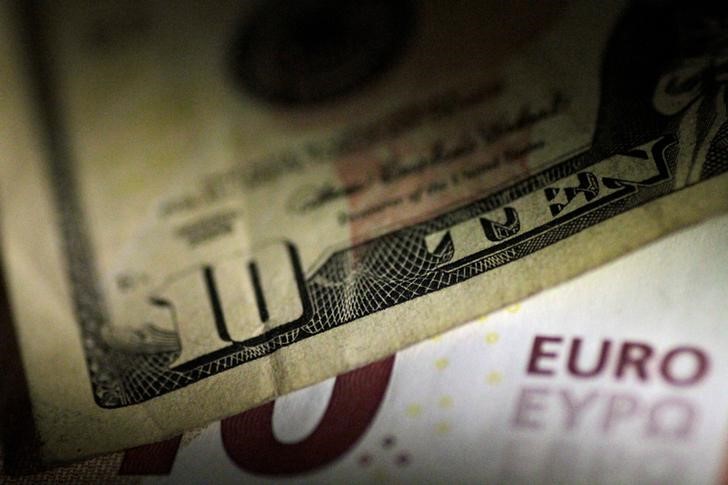Investing.com – The U.S. dollar edged lower in European trade Friday, but remained on course for a positive week, after hotter-than-expected U.S. inflation data ramped up fears of hawkish signals from the Federal Reserve next week.
At 06:15 ET (10:15 GMT), the Dollar Index, which tracks the greenback against a basket of six other currencies, traded 0.1% lower at 102.950, on track for a 0.3% rise for the week, its first weekly gain in four.
Dollar gains on hot inflation data
The U.S. rose 0.6% in February, double the 0.3% expected, adding further signs that inflation remains an issue for the Federal Reserve after data on Tuesday showed that consumer prices increased strongly for a second straight month in February.
The is due to meet next week, and is widely expected to keep interest rates unchanged.
However, the hotter-than-expected inflation data means that investors will be closely watching for the Fed’s interest rate forecasts, commonly known as its dot plot, and comments from Fed Chair Jerome Powell for clues of future monetary policies.
Markets now pricing in 60% chance of the Fed cutting rates in June, compared to 74% a week earlier, according to the CME FedWatch tool.
“The bulk of hard U.S. data for February has now been released, and the needle has moved more to the hawkish side of the spectrum,” analysts at ING said, in a note.
“The Fed can still sound relatively optimistic about disinflation next week, but policymakers will inevitably have to put greater emphasis on the next couple of months of data releases.”
Euro gains after French CPI release
In Europe, edged 0.2% higher to 1.0898, after rose more than expected in February, climbing 3.0% on an annual basis, a month-on-month increase of 0.8%.
The kept rates at record highs of 4% last week, but could start cutting interest rates in the coming months given the slow growth in the region.
A tangible recovery in Germany, Europe’s biggest economy, is not yet in sight despite positive trends in industrial production, construction and foreign trade at the start of 2024, Germany’s economy ministry said on Friday in its monthly report.
“EUR/USD is trading at more sustainable levels now, and we think it can remain under modest pressure into the FOMC meeting, in line with our dollar view,” ING added. “There are a few key moving average supports between 1.0840 and 1.0860: if broken, we could see the pair test 1.0800 in the coming days.”
ECB chief Christine Lagarde earlier this month hinted strongly that a long-awaited rate cut would be more likely to happen at the central bank’s meeting in early June, rather than in April.
traded 0.1% higher at 1.2753, with sterling near its lowest level this week, ahead of the Bank of England’s policy meeting next week.
The is widely expected to keep interest rates unchanged next week, but is likely to start cutting rates later this year to support the beleaguered economy.
Citigroup now expects the first cut in June, compared to a prior expectation of cuts beginning in August.
Yen retreats ahead of BOJ meeting
In Asia, traded 0.3% higher to 148.72, with the yen set to lose over 1% this week amid growing speculation over an upcoming meeting next week.
The central bank is widely expected to end its negative interest rate and yield curve control policies in the coming months, with analysts split over a decision being made in March or April.
The BOJ could potentially hike interest rates for the first time in nearly 17 years next week, especially as Japanese inflation remained sticky in February.
edged 0.1% higher to 7.1960, as the People’s Bank of China left its medium-term lending rates unchanged, heralding no changes to its loan prime rate next week. But weak house prices data pointed to continued pressure on the Chinese economy.
Read the full article here




